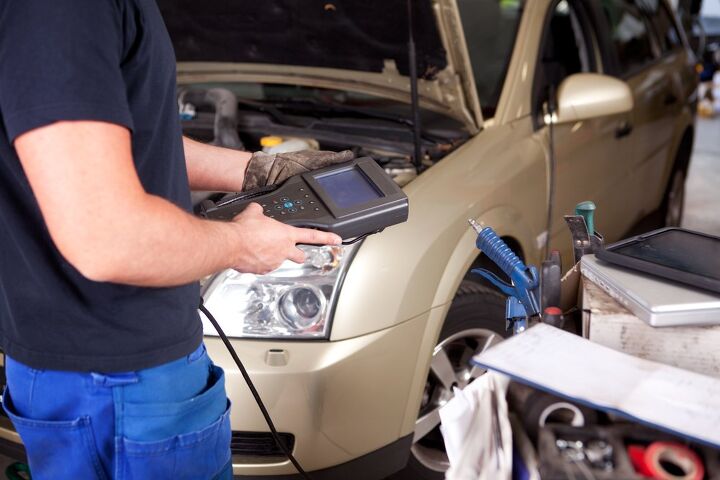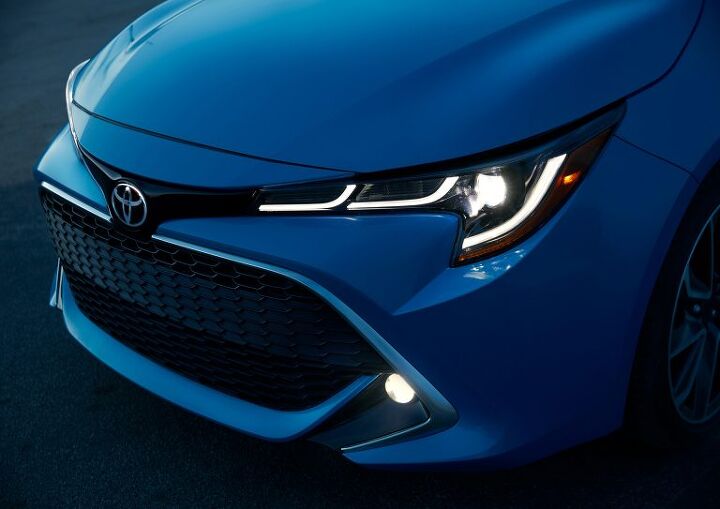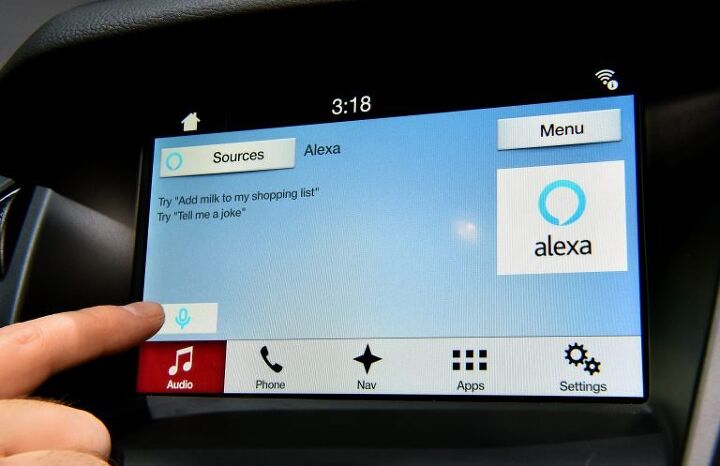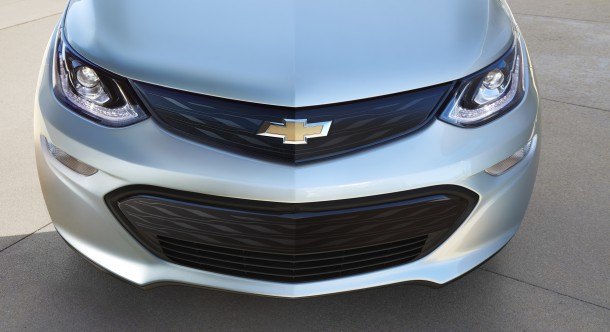#BigData
Consumer Advocacy Group Demands Driving Data Be Controlled by Drivers
The Global Alliance for Vehicle Data Access (GAVDA) has issued a letter to automotive manufacturers around the world to request consumers be given direct access to the data generated by the vehicles they drive. While the group is comprised of organizations representing rental agencies, car sharing, independent vehicle repair shops that also want access to the information, it’s likewise backed by several consumer advocacy groups that worry customers and small businesses are being taken advantage of.
At the core of the letter is a refutation of claims made in a June 3rd memo the Alliance for Automotive Innovation (AAI) sent to Congress. That group is an assemblage of the world’s largest industry players with an aim to monetize driving data as quickly as possible. It just so happens that the duo are diametrically opposed to how the government should handle user information.
Uber Offering COVID-19 Contract Tracing Data to Government Entities
Uber Technologies Inc. has kicked off a new service that provides public health officials immediate access to data on drivers and riders who may have been in contact with someone infected with COVID-19. Weirdly, the company decided against announcing the sharing of your whereabouts with the government with any fanfare. Perhaps they thought average people wouldn’t be interested, or maybe that broadcasting their own participatory role in crafting a nightmare dystopia could be bad for business.
Then again, maybe this is exactly the kind of mass surveillance we need to flatten the curve, stop the spread, or whatever slogan is currently the trendiest. Worried? Don’t be. Uber said this service will be offered free of charge, meaning you don’t even have to spend any additional money to have your information shared.
What a sweet deal!
The Hero We Need: Consumer Access to Repair Coalition
When it comes to activism, it’s best to choose your battles carefully. Fortunately, there aren’t too many causes within the auto industry and most are easy to get behind.
Even though environmental activists sometimes find themselves at odds with reality, their hearts are usually the right place, and they’ve encouraged automakers to try new and interesting things with transportation. Safety advocates can likewise go overboard, but we wouldn’t have seen cars get dramatically safer (or heavier) since the 1970s if they hadn’t.
Our favorite has to be consumer advocacy, however. With the exception of the occasional predatory lawsuit looking to take advantage of a dumb corporate decision, there’s precious little to scoff about. It also tends to overlap with our pet peeves by decrying bad business practices within the industry. Case in point, the Consumer Access to Repair Coalition has recently asked Congress to rethink how vehicular data is shared — noting that automakers shouldn’t need real-time monitoring for repairs and that the technology likely poses an unnecessary security risk.
Ford Sharing Driving Data With Allstate, Plans Loyalty Credit Card
Adhering to the latest industry trends, Ford has made a deal with insurer Allstate to share customer driving data and plans to issue a loyalty credit card tied into its rewards program. While the latter is in the service of retaining customers (with the help of Visa) in the second quarter of this year, the insurance partnership is technically already active. The Blue Oval is by no means the only automaker involved in such programs.
Like other automakers, Ford has already partnered with insurance companies in regional programs aimed at assessing how customers drive, using the collected information to adjust policies. Originally, this involved devices installed with the customer’s consent that transmitted telemetric data back to home base. Later versions were able to use on-board systems in conjunction with a downloadable app. Now, with connected cars becoming the norm, Allstate says it can just get the information directly from vehicles via manufacturer data centers.
California's Data Privacy Laws Could Stymie Auto Industry's Long-term Plans
Pretty much anytime automotive data acquisition becomes the topic of discussion, we have to take time to mention customer protections and ask where the line for privacy should be drawn. With social media firms making a mint off the process online and automakers conducting major moves to likewise leverage personal data, it’s practically a nervous tic at this point.
Hoping to get out ahead of some of the potential problems arising from issue, California enacted new consumer protection laws that came into effect at the start of the year.
The California Consumer Privacy Act (CCPA) aims to give individuals greater control over the personal data being harvested. Most of this is supposed to be done by allowing consumers to request what kind of information is being collected, ask where it’s going, and the ability request that the subsequent sale or continued acquisition of personal data cease. However, CCPA contains provisions for customers to ask a company to delete all information it has stored on them, as well as rules prohibiting any discrimination related to a person exercising their privacy rights.
Frankly, it all sounds rather good to someone who prattles endlessly about data privacy rights, but it’s also causing problems for the automotive industry.
States Begin Dealing With Driving Data, Right-to-Repair Laws
In reading this website, you’ve no doubt come across paranoid rants about automotive companies vacuuming up your personal data as connected cars become the norm — often written by yours truly. Frequently bleak, they address a multitude of concerns we believe will only get worse before they can get better.
A large part of that has to do with automakers seeing the potential of leveraging customer data, like so many tech companies have before them. But elected (and unelected) officials also seem to have a loose grasp of the technology and its potential ramifications. When the Department of Transportation initially approved self-driving vehicles for public testing, the guidelines were loose and largely dependent upon self-reporting — few wanted to stand in the way of developing systems that might someday save lives.
However, manufacturers are now beginning to issue over-the-air updates, perpetual internet connectivity, gamification, and in-car marketplaces (complete with advertisements). While the new technology has opened up new doors for customer experiences and corporate revenue, it’s accelerating at a pace that’s difficult to track. As a result, lawmakers in Massachusetts and California are starting to get antsy. The former hopes to address how data will be handled in accordance with the state’s right-to-repair laws. The latter is more directly concerned with privacy.
Ford's Adding Over-the-air Updates, Bigger Screens, More Connectivity
The days of owning an automobile that’s not perpetually connected to various digital networks are quickly coming to a close. On Wednesday, Ford announced most of its redesigned vehicles in the U.S. with have over-the-air update capability after 2020. The automaker is framing this as a way to “repair” your vehicle at home and offer new features after a model has already been purchased.
“Nobody wants to feel like they’re missing out on great features right after spending their hard-earned money on a new vehicle — that’s where our over-the-air updates can help,” said Don Butler, executive director of Ford’s connected services. “We can now help improve your vehicle’s capability, quality and overall driving experience while you’re sleeping.”
While the prospects of giving auto manufacturers remote access to your car are vast, it’s also a double-edged sword. Over-the-air updates would undoubtedly save you a trip to the service center in the event of a code-based recall but it also opens vehicle’s up to privacy concerns and gives automakers new avenues for business.
Toyota's Doing Mobility Stuff – Some a Little Creepy, Rest Kind of Fun
When an automaker discusses mobility, they’re not really talking about anything specific. The term has been established within the industry as a catch-all phrase for electrification, app-based services, autonomous programs, data acquisition, robotics, and whatever other ideas that don’t fit neatly within a company’s core product line. Providing the best example of the term’s nebulous nature this week was Toyota, which showcased a glut of mobility projects for the 2020 Olympic and Paralympic Games — as well as toying with the idea of handing over vehicle data to the Japanese government.
Let’s start with the concerning aspects before we get into the goofy stuff.
Listen Up: Amazon Putting Alexa Into More Automobiles
Amazon is striving to put Alexa, the home assistant/listening device, into more automobiles in the coming years. As a result, the company is working feverishly to enhance her vehicular-related capabilities — including wriggling her way into the embedded software systems of new cars.
On the surface, it sounds great. Networking your car with your smart home device opens up a bevy of new conveniences and Alexa should also help your car get better at understanding everyday voice commands. In the future, you’ll be able to order groceries, check the stock market, call the office, and adjust the thermostat of your house and car without ever having to take your hands off the steering wheel. But this also opens up a bevy of concerns, now that we know Amazon’s employees listen to and record pretty much everything you say to the device — sometimes doing the same for background conversations that were never intended for Alexa’s ears.
BEV Fires Encourage China to Get Serious About Battery Safety, Vehicle Monitoring
China is currently the largest proponent of electric vehicles on the entire planet. The nation has even incorporated BEVs as a significant part of its complex strategy to overtake the United States the dominant global superpower. However a sudden influx of battery related fires has caused it some trepidation, even though there hasn’t been much evidence to suggest they are actually more prone to catching fire than gas-powered vehicles.
Regardless, the People’s Republic is now demanding that manufacturers conduct routine inspections on electric cars. China’s Ministry of Industry and Information Technology says all companies must conduct checks on BEVs, focusing on battery waterproofing, battery boxes, charging points, high-voltage wiring harnesses, and even the wear of mechanical components. They will also be required to report on repairs and any incidents that might indicate a problem. According to the ministry’s press release, they have until October to submit their findings.
Driving Dystopias: China Doesn't Sound Terribly Fun
With China having become the world’s largest automotive market by individual sales, it’s worth keeping tabs on it for burgeoning driving trends. While that’s predominantly revolved around electric vehicles, the People’s Republic also has pretty strict driving rules backed by some of the tightest monitoring of a civilian population imaginable. China is setting up a vast surveillance system that tracks every single one of its 1.4 billion citizens and is adapting it for use in its new “social credit system,” which sounds like the most Orwellian thing in existence.
The system is intended to publicly shame criminals, debtors, jaywalkers, and those with “controversial” political views while monitoring their every move but it’s also doing a fine job of making life harder for drivers.
Wrecked Cars Are Now a Treasure Trove of Personal Information
As cars grow more dependent upon computer-controlled driving aids and automakers implement permanent internet connectivity, we’ve grown increasingly concerned with how automakers handle their customer’s data.
It sounds conspiratorial, but there’s a series of events to hang the tinfoil hat on. In 2017, General Motors announced it had successfully monitored the listening habits of 90,000 motorists in a study aimed at improving marketing insights. It also rejiggered OnStar and introduced the Marketplace app for seamless in-car purchasing options. Our take was that it was as impressive as it was ominous — and GM is only leading the charge into a what analysts believe will eventually become a multi-billion dollar industry.
Naturally, this led to privacy concerns over how automakers will protect customer data on future models. But we might want to start worrying about the cars we have now. A couple of white-hat hackers (those are the good ones) recently probed the internal computer networks of wrecked and salvaged Teslas and found a mother lode of personal information waiting inside.
Ford to Launch Data Monitoring/Analytics Program on Commercial Fleets
We’ve prattled on before about how General Motors sees data mining as its next big business opportunity. While much of our take focused on the risk that customers might lose their privacy and become both commodity and consumer, it would be stupid to suggest it isn’t also a highly lucrative business strategy.
Social media outlets sell your personal information on a daily basis and other industries see potential in that. GM isn’t the only automaker jumping on the bandwagon, it’s simply the one with the most transparent blueprint.
Ford recently opened up about its own data strategy. The company previously announced large investments into data centers, stating its intent to equip 90 percent of its global fleet with modem connectivity by 2020. Ford Smart Mobility was also reorganized earlier this year, an effort that included the acquisition of two tech firms focused on transit data. The automaker split the group to focus on key areas: transportation data, marketing, tech development, and the management of previously established programs like FordPass and Chariot.
Ford obviously had a plan in the works for a while, but we didn’t know exactly what Ford’s execution would look like until now.
General Motors to Build Two Bolt-based Crossovers, Considers the Data-mining Business
General Motors CEO Mary Barra outlined the company’s vision of the future at the Barclays Global Automotive Conference in New York on Wednesday. While the majority of her speech adhered to GM’s current mantra of “zero crashes, zero emissions, and zero congestion,” we also got a taste of what that thinking might yield on a shorter timeline.
In early October, GM expressed its intention to launch 20 new electric vehicles by 2023. However, we didn’t get any specific details on the matter. That changed this week. Barra claims the manufacturer will introduce three new electric models by 2020, with two of them being crossovers. The trio will share share basic components with the Chevrolet Bolt.
TTAC News Round-up: CES Is an Auto Show Now, Volkswagen Apologizes (Again), and Do You Want to Be an Automotive Journalist?
Started in New York City in 1967 as an offshoot of the Chicago Music Show, the Consumer Electronics Show has grown to capture the interest and intrigue of automakers. Las Vegas now has two auto shows.
That, Volkswagen’s unending stream of German-accented apologies, why Ford might not be hitching itself to Google and how you can become an automotive journalist* … after the break!






























Recent Comments